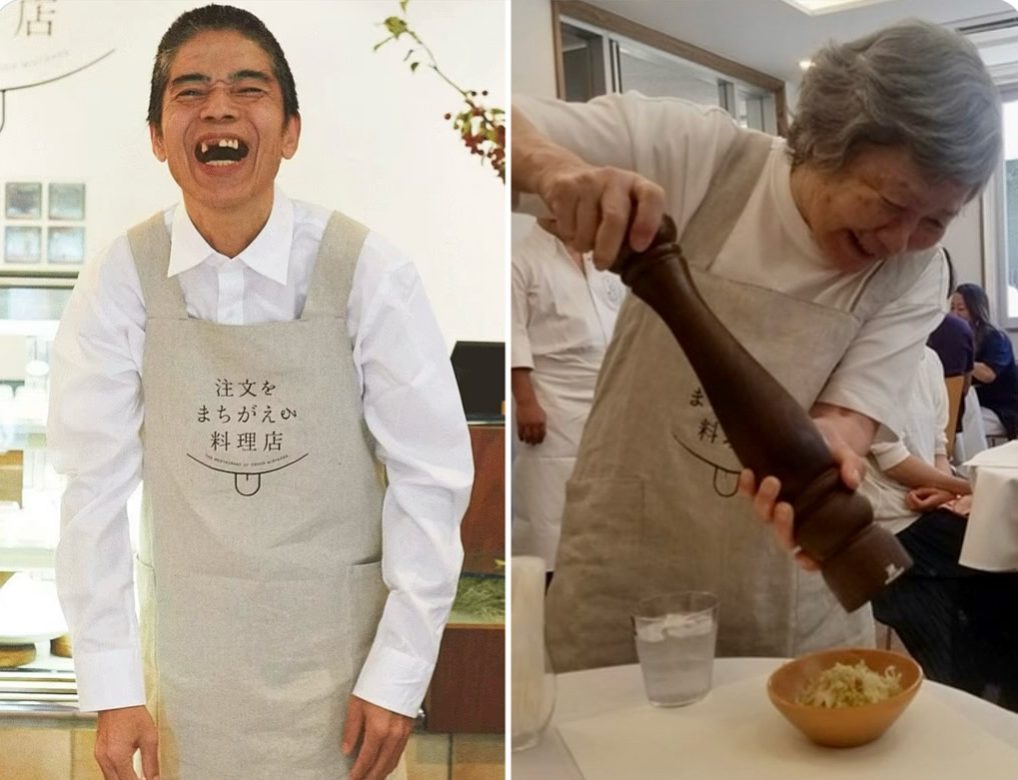“The Restaurant of Mistaken Orders” in Japan Employs Waiters with Dementia, So You Never Know What You’re Going to Get
There’s a restaurant in Tokyo where your meal might not be what you ordered—and somehow, that’s the whole point. It’s called “The Restaurant of Mistaken Orders,” and it’s not just a place to eat. It’s a quiet revolution served with tea, rice, and a warm smile from someone who might forget your order—but will never forget how to make you feel welcome.
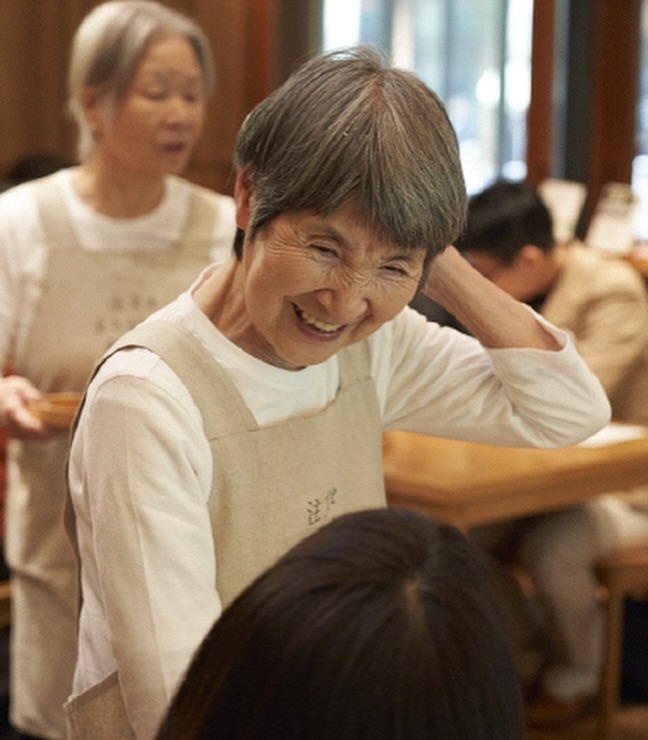
The first time I heard about this place, I honestly wasn’t sure how to feel. A restaurant run by people with dementia? Isn’t that… risky? But then I dug a little deeper and realized this wasn’t some social experiment played for laughs. It was something much more meaningful. It was about acceptance. About breaking the silence around dementia. About replacing pity with purpose. The founder, Shiro Oguni, a television director in Japan, didn’t set out to create a restaurant at all. He just wanted people to see dementia differently.
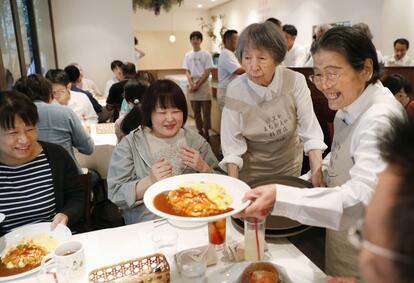
His idea sparked during a visit to a nursing home where he met several residents living with early-stage dementia. Many of them were still highly functional—chatty, aware, and curious—but the stigma around dementia was suffocating. Society had already decided what they couldn’t do. Oguni wanted to shine a light on what they could. So he launched the first pop-up version of The Restaurant of Mistaken Orders in 2017, and almost instantly, something magical happened.
Customers came in expecting the usual: you place an order, get what you ordered, and leave. But at this restaurant, there was a twist. The staff—elderly men and women, many in their 70s and 80s—greeted them warmly, took their orders, and did their very best to serve. Sometimes, the orders came out wrong. A misdelivered salad. A tea instead of coffee. Dumplings instead of noodles. But something surprising happened each time: no one got upset.
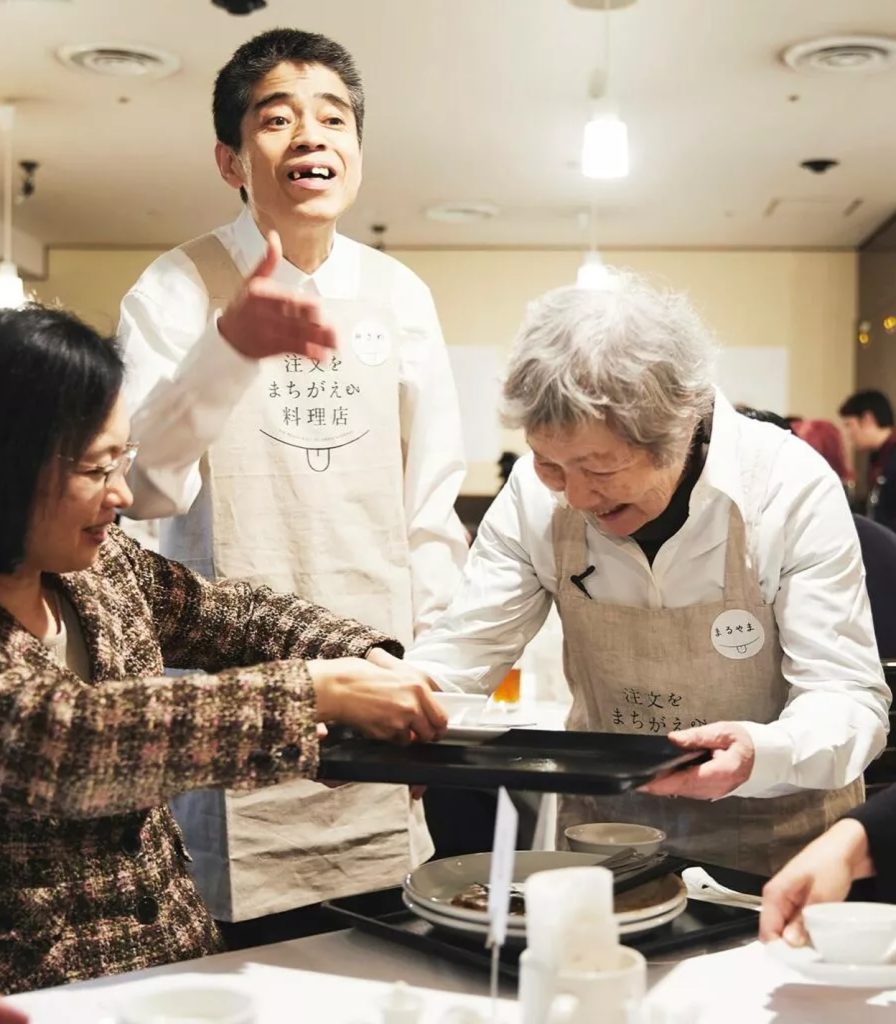
In fact, most customers just smiled. Some laughed. Many said it made the experience even more memorable. Because instead of getting hung up on perfection, they realized they were part of something bigger—something human. In a world that moves too fast and demands too much, this tiny restaurant offered a moment to slow down and feel.
And the staff? They blossomed. With every table they served, with every giggle from a customer who got the “wrong” dish, they felt seen. They felt valued. For so long, they’d been treated like burdens, forgotten by society. But here, they were the heart of the place.
It’s easy to forget how powerful kindness can be. We live in a world that rewards speed and efficiency, where mistakes are often met with eye rolls or worse. But in this little corner of Tokyo, mistakes became moments of connection. Of shared understanding. Of warmth.
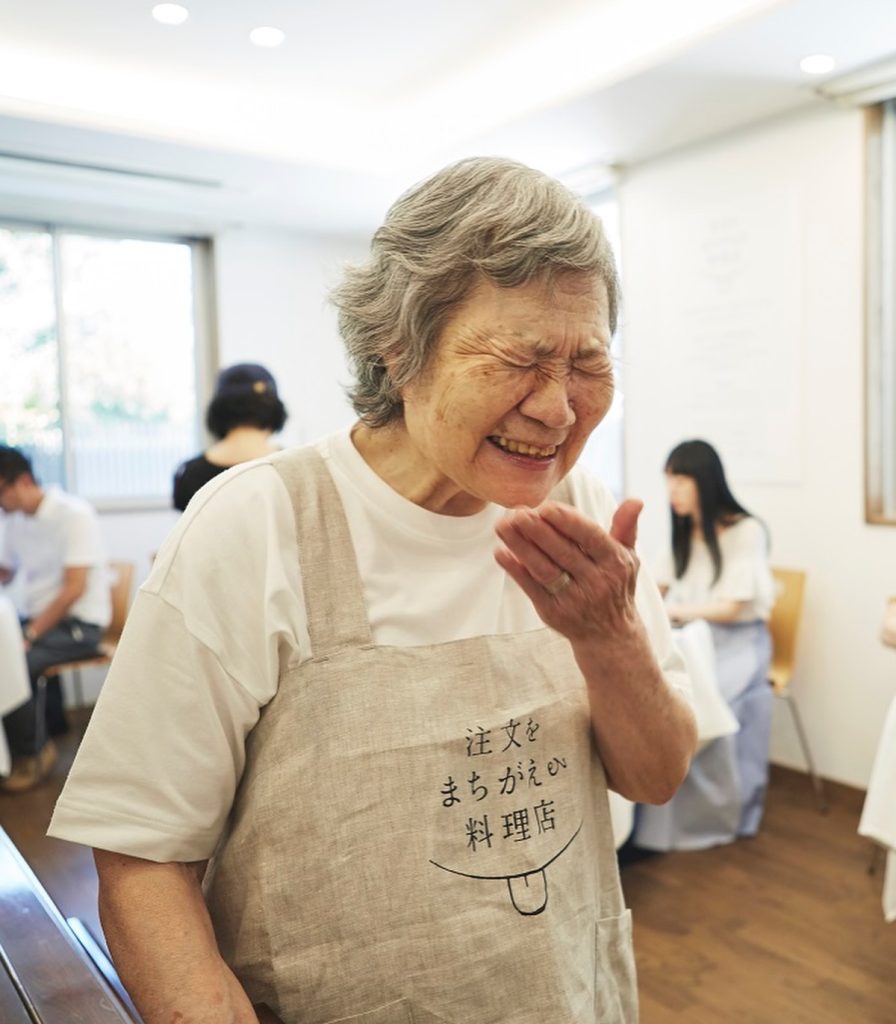
One of the most touching stories came from a waitress who’d delivered soup instead of the rice bowl a customer ordered. When she realized the mistake, she looked embarrassed. But the customer just smiled and said, “It’s okay. This is exactly what I didn’t know I needed.” They laughed together, and that simple exchange transformed a moment of forgetfulness into one of joy.
The restaurant doesn’t try to pretend the waiters don’t have dementia. In fact, it embraces it. The menus come with a disclaimer explaining that your order might not be exactly right, and that’s part of the charm. The point isn’t the food—it’s the experience.
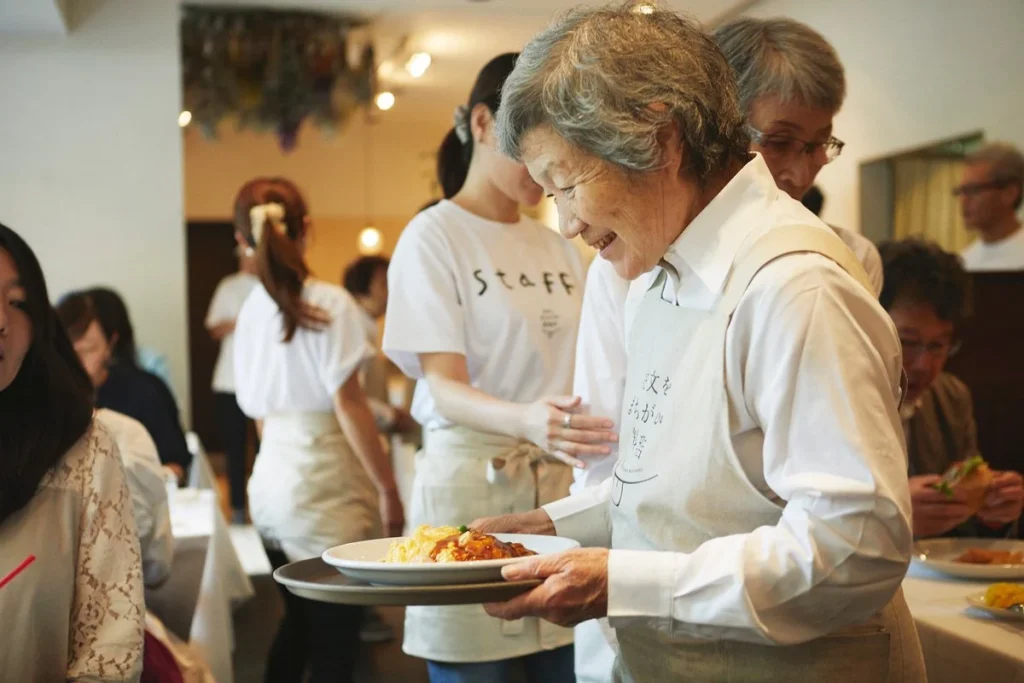
That said, the food’s actually pretty great. Traditional Japanese dishes made with love. Simple. Comforting. And the service? Maybe a little slow, maybe a little unpredictable, but always sincere.
It’s not just the diners who benefit. The staff themselves say they feel a renewed sense of purpose. For many people living with dementia, one of the hardest parts isn’t the memory loss—it’s the isolation. Being treated like they no longer matter. This restaurant flips that narrative. Here, they’re not patients. They’re team members. Hosts. Providers of joy.
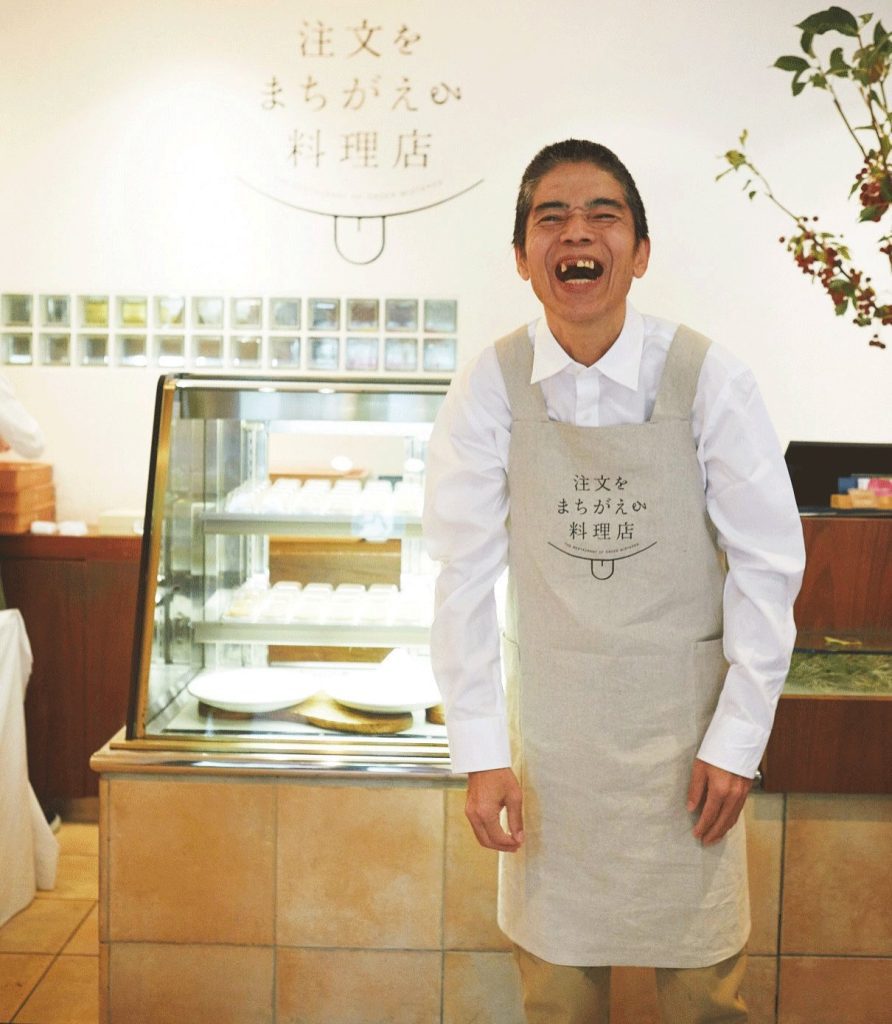
And it’s working. The concept has been so successful that it’s inspired similar initiatives across Japan and beyond. In Belgium, a reality show called “Restaurant Misverstand” (Restaurant Misunderstanding) follows the same model. In the UK, restaurants have started looking into how they can adopt more inclusive practices. And every time a new version of this idea is born, the world gets just a little bit softer, a little bit more human.
I think what moves me most about The Restaurant of Mistaken Orders is that it reminds us of something we often forget: perfection isn’t necessary for love. Or dignity. Or joy. We chase perfection like it’s the goal, but the real magic lies in the imperfect. In the surprise of a wrong order. In the resilience of an old man carrying a tray. In the way a stranger’s smile can melt your heart.
There’s a reason why people come back to this restaurant, even if they didn’t get the dish they wanted. It’s because they got something better: a reminder that kindness still exists. That it’s okay to slow down. That it’s beautiful to meet people exactly where they are.
So maybe next time you sit down to eat—whether it’s in Tokyo or your own kitchen—take a moment to appreciate the person across from you. Listen with more patience. Laugh a little easier. And remember that sometimes, getting the wrong thing can feel exactly right.

Daniel Reed is a curious mind with a passion for breaking down how the world works. With a background in mechanical engineering and digital media, he turns complex ideas into easy-to-understand articles that entertain and inform. From vintage tools and modern tech to viral internet debates and life hacks, Daniel is always on the hunt for the “why” behind the everyday. His goal is simple: make learning feel like scrolling through your favorite feed — addictive, surprising, and fun.
